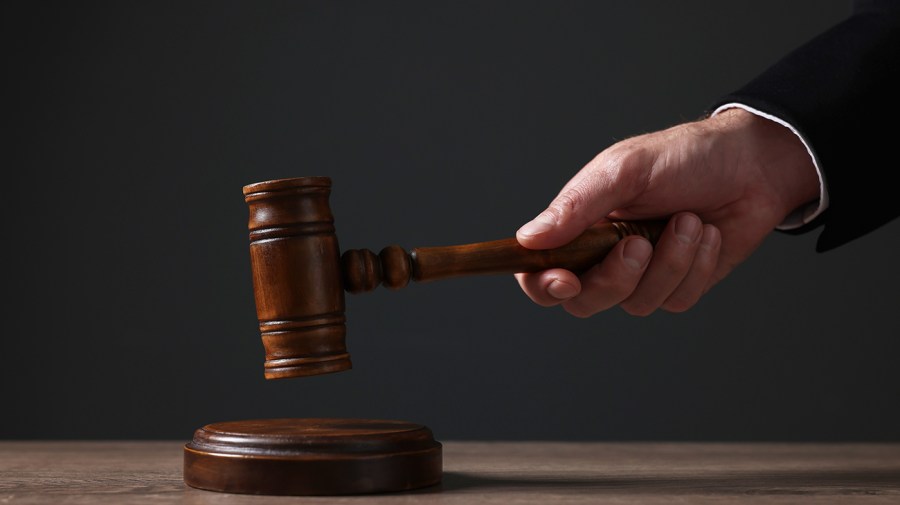Opinion: How China and U.S. Taxpayers Fuel the Left's Climate Lawfare

Understanding the Alleged Lawfare Against American Energy
Congressional hearings often serve as platforms for political discourse, but some hold particular significance in revealing attempts to undermine democratic processes. One such hearing took place last month in the Senate Subcommittee on Federal Courts, Oversight, Agency Action, and Federal Rights. The hearing was titled “Enter the Dragon — China and the Left’s Lawfare Against American Energy Dominance.” It focused on allegations of a coordinated effort by the radical left, allegedly backed by the Chinese Communist Party, to challenge American energy production through legal means.
Senator Ted Cruz (R-Texas), the subcommittee chairman, described the issue as a “systematic campaign against American energy,” claiming that foreign money from entities linked to the Chinese Communist Party funds climate advocacy groups. These groups, according to Cruz, use litigation to target U.S. energy producers, aiming to bankrupt them and dismantle infrastructure through attrition. He further argued that left-wing nonprofits are influencing judges through closed-door training sessions, attempting to align judicial decisions with their ideological goals.
However, this argument faces challenges. The so-called climate lawfare campaign has largely failed in courtrooms across the country. For instance, courts in Bucks County, Pennsylvania; the U.S. Court of Appeals for the Second Circuit; New Jersey Superior Court; Anne Arundel County Circuit Court; Baltimore City Circuit Court; Delaware Superior Court; and even the U.S. Supreme Court have repeatedly dismissed these cases. A notable example is the unanimous dismissal in American Electric Power vs. Connecticut. Despite these setbacks, the campaign continues, raising concerns about its persistence and potential long-term impact.
The Climate Judiciary Project, part of the Environmental Law Institute, has been criticized for its ideological approach. Its legal theories and arguments are seen as alarmist, ignoring evidence that contradicts their claims. This includes the failure of climate models to accurately predict temperature trends and the distinction between natural and human-induced climate factors. Despite this, the project continues to receive substantial funding from various foundations, suggesting a willingness to keep pursuing its agenda.
Cruz’s broader argument about the nature of the lawfare against U.S. energy producers remains significant. His point about using lawsuits to block new pipelines and energy infrastructure, often under the guise of the National Environmental Policy Act (NEPA), highlights a long-standing issue. While the Supreme Court has recently narrowed NEPA's application, the practice has been widely criticized for being perverse.
Testimony from Scott Walter, president of Capital Research Center, supports these concerns. He highlighted the role of foreign entities, including Russia and China, in undermining America’s energy sector. According to Walter, these countries benefit when the U.S. hinders its own energy development, whether through selling gas to Europe or promoting “green” technology in America. He also pointed out troubling ties between environmentalist groups and foreign interests, such as the Rocky Mountain Institute’s China program and the California China Climate Institute’s partnership with Tsinghua University.
Moreover, American taxpayers may be inadvertently funding these efforts. The Environmental Law Institute has received awards from the Environmental Protection Agency and the Department of Homeland Security, raising questions about the use of public funds to influence climate science. This not only distorts scientific research but also represents an attack on democratic institutions, as political movements seek to achieve their goals through litigation rather than legislative processes.
At its core, this issue reflects a deeper threat to constitutional principles. The Constitution is designed to protect individuals and businesses from ideological attacks, yet the current climate litigation landscape risks undermining this foundational framework. As Benjamin Zycher, a senior fellow at the American Enterprise Institute, notes, the ongoing efforts represent a real pollution of our constitutional values.
Post a Comment for "Opinion: How China and U.S. Taxpayers Fuel the Left's Climate Lawfare"
Post a Comment